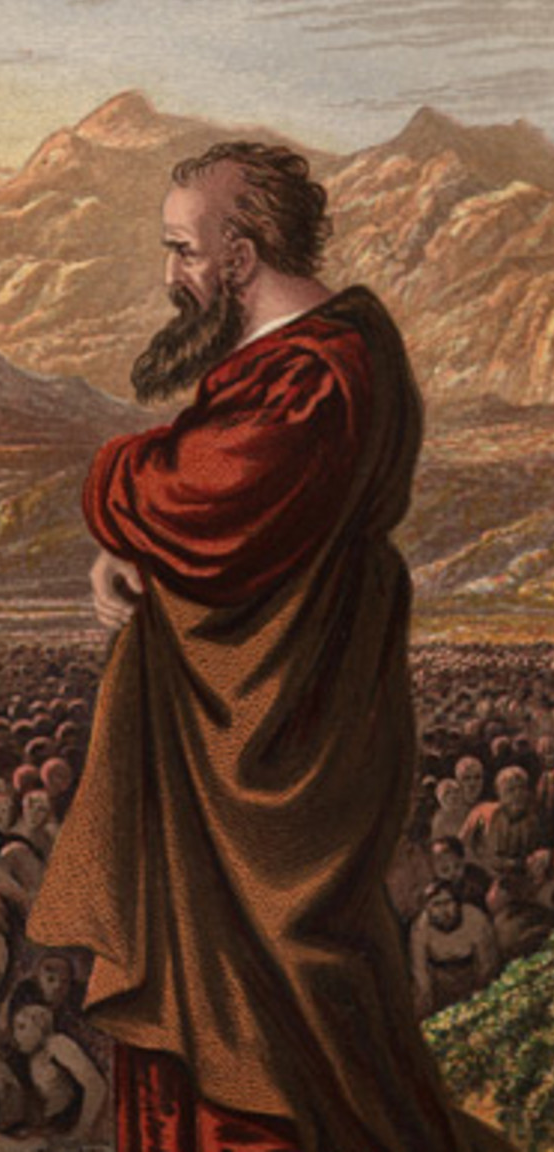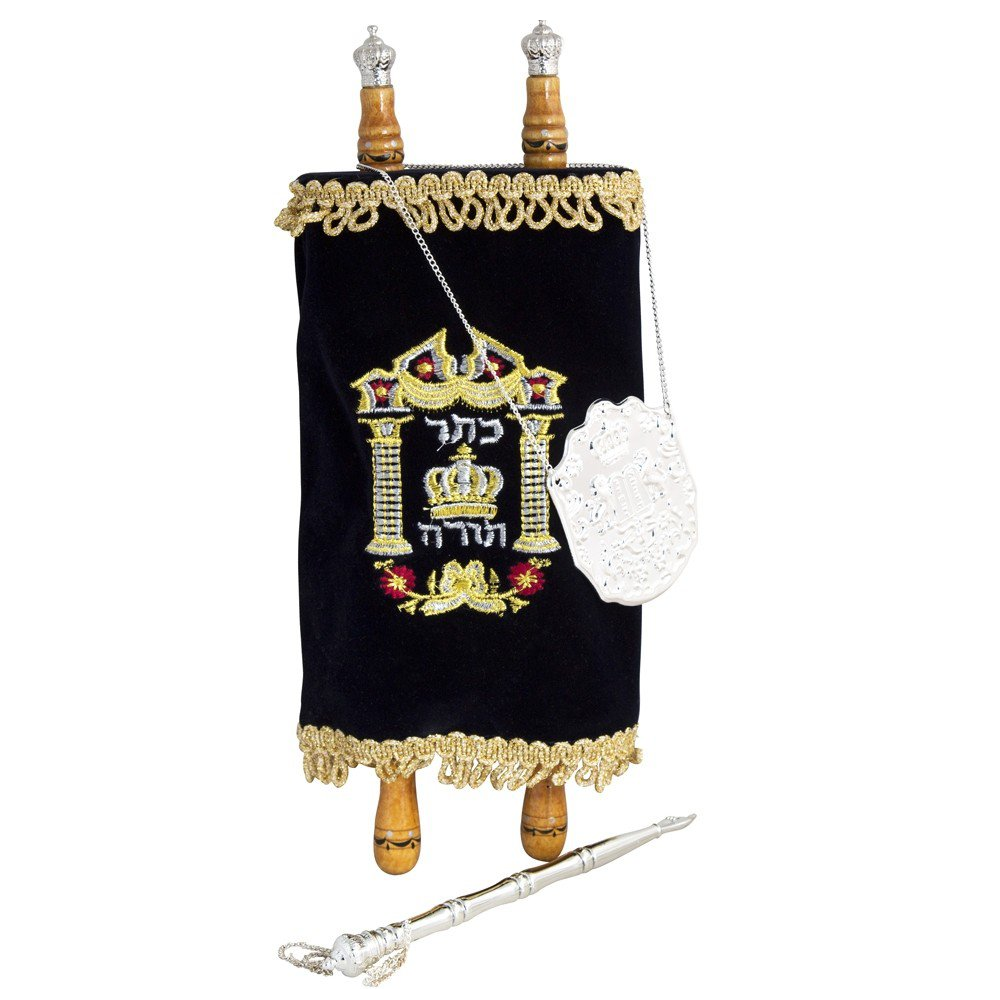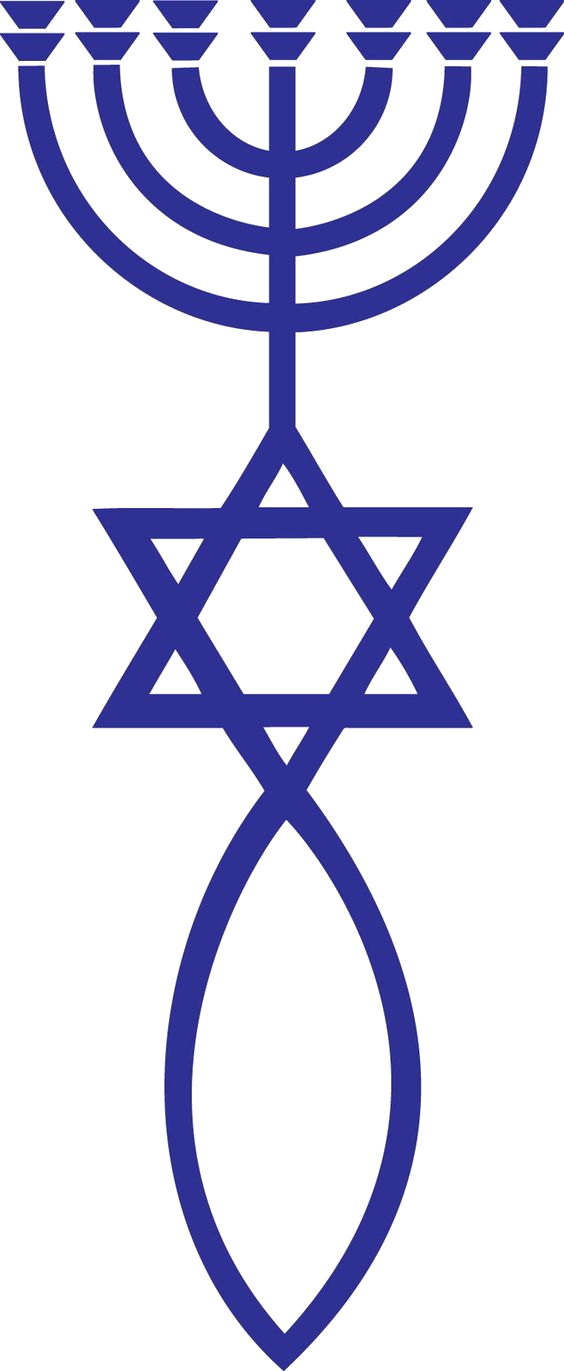|
Weekly Parashah |
|||||
| Torah: Exo. 25:1-27:19 | Haftara: 1 Kings 5 : 26 – 6 : 13 | Brith Chadashah: 2 Cor. 9:1-15 Mt. 12:46–13:58 Mt. 5:33-37 |
|||
| Teruman (Gift, Offering) |
|||||
Scripture: |
Exodus 25 : 1 – 27 : 19 |
Torah |
|||
|
|
Tabernacle: Ark, Table, Menorah25 Adonai spoke to Moses saying, 2 “Tell Bnei-Yisrael to take up an offering for Me. From anyone whose heart compels him you are to take My offering. 3 These are the contributions which you are to receive from them: gold, silver and bronze; 4 blue, purple and scarlet cloth; fine linen and goat hair; 5 ram skins dyed red, sealskins, acacia wood; 6 oil for the light, spices for the anointing oil and for the sweet incense; 7 onyx stones and setting stones for the ephod and for the breastplate. 8 “Have them make a Sanctuary for Me, so that I may dwell among them. 9 You are to make it all precisely according to everything that I show you—the pattern of the Tabernacle and the pattern of all the furnishings within—just so you must make it. |
||||
Scripture: |
1 Kings 5 : 26 – 6 : 13
|
Haftarah |
|||
|
26 Adonai gave Solomon wisdom as He promised him, so there was shalom between Hiram and Solomon, and the two of them cut a covenant. 27 King Solomon also imposed forced laborers from all Israel—the levy was 30,000 men. 28 He sent them to Lebanon, in shifts of 10,000 a month: they would stay a month in Lebanon, then two months at home. Adoniram was over the forced labor. 29 Solomon had 70,000 porters, and 80,000 stonecutters in the mountains, 30 besides Solomon’s chief officers that were over the work—3,300 who supervised the people who were doing the work. 31 Then the king commanded, and they quarried great stones, costly stones, to lay the foundation of the House with cut stones. 32 So Solomon’s builders and Hiram’s builders along with the Gebalites cut them, and prepared the timber and the stones to build the House. Building the Temple6 Now it came to pass, 480 years after the children of Israel came out of the land of Egypt, in the fourth year of Solomon’s reign over Israel, in the month Ziv (which is the second month), that he began to build Adonai’s House. 2 Now the House that King Solomon built for Adonai was 60 cubits[a] long, 20 cubits wide, and 30 cubits high. 3 The porch in front of the Sanctuary of the House was 20 cubits in length—corresponding to the breadth of the House—and its depth was ten cubits from the front of the House. https://www.biblegateway.com/passage/?search=1+Kgs.+5%3A26%E2%80%936%3A13&version=TLV |
 |
||||
Scripture: |
2 Corinthians 9 : 1 – 15 Matthew 12 : 46 – 13 : 58 Matthew 5 : 33 – 37 |
Brit Chadashah |
|||
|
|
Now about this service to the kedoshim, it is indeed unnecessary for me to write to you— 2 for I know your eagerness. I boast about it to the Macedonians, that Achaia has been preparing for a year already; and your zeal has stirred up most of them. 3 But I am sending the brothers in order that our boasting about you may not be in vain in this case, so that you may be prepared, just as I kept saying. 4 Otherwise, if any Macedonians were to come and find you unprepared, we—not to mention you—would be put to shame in this undertaking. 5 So I thought it necessary to urge the brothers to go on to you and arrange ahead of time your generous gift that had been promised beforehand, so that it would be ready as a gift and not as an extortion. Sowing and Reaping Generosity6 The point is this: whoever sows sparingly shall also reap sparingly, and whoever sows bountifully shall also reap bountifully. [a] 7 Let each one give as he has decided in his heart, not grudgingly or under compulsion—for God loves a cheerful giver. [b] 8 And God is able to make all grace overflow to you, so that by always having enough of everything, you may overflow in every good work. 9 As it is written, “He scattered widely, He gave to the poor; 10 Now the One who supplies seed to the sower and bread for food will supply and multiply your seed and increase the harvest of your righteousness. [d] https://www.biblegateway.com/passage/?search=2+Cor.+9%3A1-15&version=TLV Embrace and Refrain46 While Yeshua was still speaking to the crowds, His mother and brothers were standing outside, trying to speak to Him. 47 Someone said to Him, “Look, Your mother and Your brothers are standing outside, trying to speak to You.”[a] 48 But to the one telling Him this, Yeshua responded, “Who is My mother? And who are My brothers?” 49 Stretching out His hand toward His disciples, He said, “Here are My mother and My brothers. 50 For whoever does the will of My Father in heaven, he is My brother and sister and mother.” Simple Stories, Profound Truths13 On that day after Yeshua left the house, He was sitting by the sea. 2 And large crowds gathered around Him; so He got into a boat and sat down, and the whole crowd stood on the shore. 3 And He told them many things in parables, saying, “Behold, a sower went out to spread some seed. 4 As he was scattering the seed, some seeds fell by the road; and the birds came and ate them up. 5 Other seeds fell on rocky ground, where they didn’t have much soil. They sprang up immediately, because the soil wasn’t deep. 6 But when the sun came up, they were scorched; and because they had no roots, they withered away. 7 Other seeds fell among the thorns, and the thorns grew and choked them out. 8 But others fell on good soil and were producing fruit. They yielded a crop—some a hundredfold, some sixty, some thirty. 9 He who has ears,[b] let him hear.” 10 Then the disciples came to Him and said, “Why do You speak to them in parables?” 11 And He replied to them, “To you has been given to know the secrets of the kingdom of heaven, but to them it has not been given. 12 For whoever has, to him more will be given and he will have plenty. But whoever does not have, even what he has will be taken away from him. 13 For this reason I speak to them in parables, because seeing they do not see, https://www.biblegateway.com/passage/?search=Mt.+12%3A46%E2%80%9313%3A58&version=TLV 33 “Again, you have heard that it was said to those of old, ‘You shall not swear falsely, but shall carry out your oaths to Adonai.’ [a] 34 But I tell you, do not swear at all—not by heaven, for it is the throne of God; 35 or by the earth, for it is the footstool of His feet;[b] or by Jerusalem, for it is the city of the Great King. [c] 36 And do not swear by your head, for you cannot make a single hair white or black. 37 But let your word ‘Yes’ be ‘Yes’ and your ‘No,’ ‘No’—anything more than this is from the evil one.” https://www.biblegateway.com/passage/?search=Mt.+5%3A33-37&version=TLV |
||||
Parashah in 60 seconds |
|||||
The Garden of Prayer
The Power of Praying for Each Other
Cultivating a Sacred Online Prayer Community
 In today's world, where negativity and profanity can infect online spaces, it is vital to establish an online prayer community that upholds reverence, respect, and the sanctity of prayer. The Garden of Prayer, an online prayer center ministry from Eagle Wings Charismatic Ministries International, understands the importance of maintaining a sacred space for intercession. With a dedicated editorial review process, The Garden of Prayer ensures that all prayer submissions are carefully evaluated, filtering out inappropriate and offensive language. This process plays a significant role in cultivating a powerful and authentic praying community.
In today's world, where negativity and profanity can infect online spaces, it is vital to establish an online prayer community that upholds reverence, respect, and the sanctity of prayer. The Garden of Prayer, an online prayer center ministry from Eagle Wings Charismatic Ministries International, understands the importance of maintaining a sacred space for intercession. With a dedicated editorial review process, The Garden of Prayer ensures that all prayer submissions are carefully evaluated, filtering out inappropriate and offensive language. This process plays a significant role in cultivating a powerful and authentic praying community.
Upholding Sanctity
The editorial review process is more than just a filter for offensive content; it safeguards the integrity and purity of the prayer community. By carefully moderating each prayer request, The Garden of Prayer creates an atmosphere conducive to spiritual growth, healing, and genuine intercession. Prayer is a sacred act of communication with the Divine, and maintaining an environment that honors and reveres this connection is paramount.
Refining Prayer Requests
The review process extends beyond filtering out inappropriate language. It aims to ensure that prayer requests align with the values and mission of the  community. The dedicated review team offers guidance and suggestions to refine and clarify prayer requests, enhancing the overall prayer experience for both the individuals submitting their needs and the prayer warriors interceding on their behalf. This ensures that prayers are effectively communicated and resonate deeply with the hearts of intercessors.
community. The dedicated review team offers guidance and suggestions to refine and clarify prayer requests, enhancing the overall prayer experience for both the individuals submitting their needs and the prayer warriors interceding on their behalf. This ensures that prayers are effectively communicated and resonate deeply with the hearts of intercessors.
Fostering Authenticity
Through strict editorial standards, The Garden of Prayer fosters an atmosphere of authenticity and spiritual growth. Individuals who submit their prayer requests can trust that their needs will be handled with care and respect. Likewise, prayer warriors can engage in meaningful intercession, knowing they are part of a supportive community united in faith. The editorial review process allows for a genuine and impactful exchange of prayers, fostering a sense of trust and connection among members.
Creating a Sacred Space
In an increasingly noisy and divisive world, the editorial review process acts as a filter, protecting the praying community from negative influences and preserving the sanctity of prayer. The Garden of Prayer provides a sanctuary where individuals can find solace, hope, and the transformative power of collective prayer. It is a place where the voices of faith are amplified, and the genuine concerns and heartfelt needs of individuals are heard and uplifted.
Editorial Review
Th e power of praying for each other is magnified within a sacred online prayer community. The Garden of Prayer, through its meticulous editorial review process, ensures that the sanctity and purity of prayer are upheld. By filtering out inappropriate content, refining prayer requests, and fostering authenticity, The Garden of Prayer creates an environment that is conducive to deep spiritual connection, healing, and transformation. In this sanctuary of faith, individuals can find support, solace, and the strength that comes from knowing they are part of a praying community that stands united in faith.
e power of praying for each other is magnified within a sacred online prayer community. The Garden of Prayer, through its meticulous editorial review process, ensures that the sanctity and purity of prayer are upheld. By filtering out inappropriate content, refining prayer requests, and fostering authenticity, The Garden of Prayer creates an environment that is conducive to deep spiritual connection, healing, and transformation. In this sanctuary of faith, individuals can find support, solace, and the strength that comes from knowing they are part of a praying community that stands united in faith.









